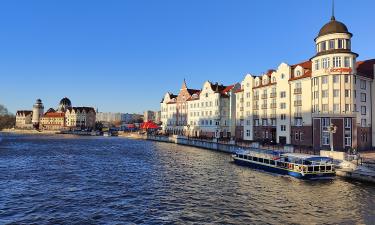Unemployment in Europe is a Highly Pressing Issue
Europe’s unemployment rate unexpectedly increased to the highest in more than 11 years in November as companies cut costs in the wake of the worst recession in more than six decades.

Unemployment in the euro area rose to 10 percent from a revised 9.9 percent in October, the European Union statistics office in Luxembourg said today. That’s the highest since August 1998. Economists forecast a November rate of 9.9 percent after the 9.8 percent initially reported for October, a survey showed. The euro-area economy expanded 0.4 percent in the third quarter from the previous three months, according to a separate report.
European companies are cutting jobs and paring wages to shore up earnings battered by the global slump.
“We’ll probably see further gains in unemployment over the coming months, with the jobless rate peaking at 10.7 percent in the second half,” said Juergen Michels, chief euro-region economist at Citigroup Inc. in London. “That’s obviously bad news to consumers, which will be hurt by job cuts, lower wage growth and rising energy costs.”
The euro pared its gains against the dollar after the data and traded at $1.4317 at 10:31 a.m. in London, up less than 0.1 percent on the day. The yield on the German 10-year benchmark bond rose 0.2 basis point to 3.38 percent.
The euro-area economy returned to growth in the third quarter after governments spent billions of euros on stimulus programs to bolster spending. Still, corporate investment fell 0.8 percent in the quarter and consumer spending dropped 0.1 percent, today’s data showed. The European Central Bank last month kept borrowing costs at a record low and said it will exit some unconventional measures as the recovery progresses.
In Germany, Europe’s largest economy, unemployment unexpectedly declined in December, keeping the jobless rate at 8.1 percent, the Federal Labor Agency said on Dec. 5. German Chancellor Angela Merkel’s Cabinet extended the so-called short- term work program for a year from this month, allowing companies to continue tapping federal aid to help pay wages. As many as 140,000 people were on short-term work last month, the Federal Labor Agency said on Jan. 5.
With a 94 percent surge in oil prices over the past year threatening to crimp earnings and the euro’s 5.2 percent ascent against the dollar over the same period making exports less competitive, companies may remain reluctant to add workers. European industrial orders dropped more than economists forecast in October from the previous month.
Siemens AG, Europe’s largest engineering company, last month posted its first quarterly loss in a year and forecast a drop in 2010 earnings. The Munich-based company cut its global workforce by 3.6 percent in 2009 to weather a slump in orders.
Paris-based Accor SA, Europe’s largest hotel company, eliminated 1,000 jobs in France last year. ThyssenKrupp AG, Germany’s largest steelmaker, said in November that it plans to cut about 20,000 jobs.
With the euro-area jobless rate forecast by the EU to reach 10.7 percent this year, consumers may keep a rein on spending. European retail sales posted the biggest drop in 13 months in November, the statistics office said yesterday.
BusinessWeek has contributed to the report.
Subscribe to Pravda.Ru Telegram channel, Facebook, RSS!




